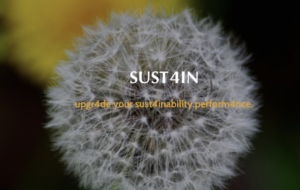Climate change: COP24 has laid the foundation for ambition
- SUST4IN brings together government, NGOs, trade unions, investors and companies at the COP24 Katowice: The Day After Conference held yesterday in Madrid, with full house.
- The results of the COP24, the new Spanish Law on Climate Change, the cases of Madrid and Seville, the just transition and the actions of investors and various business sectors have been debated in the conference.
- The COP24 in Katowice has laid the foundations for ambition, although with incomplete decisions.
Madrid, 19 December 2018. COP24, the international climate conference in Katowice, Poland, has managed to approve a broad set of rules for the implementation of the Paris Agreement. The package includes rules on transparency, financing and other elements, although an agreement on an international emissions trading mechanism has not been achieved.
Yesterday SUST4IN, experts on sustainability, has organized in Madrid the COP24 Katowice: The Day After Conference with authorities from the Spanish Ministry for Ecological Transition, the municipalities of Madrid and Seville, NGOs, trade unions, investors and companies, which discussed the results of COP24, the new Spanish Law on Climate Change and Energy Transition, sustainable mobility (with the cases of Madrid and Seville), the just transition and the commitments of investors and companies.
In the opening, the founder and director of SUST4IN, Marcio Viegas, advanced that “In the current geopolitical context, it´s been almost a miracle that an agreement has been reached in Katowice, although it is sadly incomplete with regards to emissions trading”·
Next, Paz Valiente Calvo, General Coordinator of Environment, Sustainability and Mobility of the Madrid City Municipality, and Esperanza Caro, General Director of Economy and Commerce of the Seville Municipality, presented the cases of Madrid and Seville respectively. “It is necessary to rethink the concept of cities in collaboration with other administrations, since we do not have all the competences,” said Valiente. José Manuel Marques, Head of the Financial Innovation Division of the Bank of Spain, Joaquín Nieto, Director of the Office for Spain of the International Labor Organization (ILO) and Valentín Alfaya, President of the Spanish Green Growth Group, closed the first part. “The worst of COP24 has been the procrastination in the decision-making process, just at a time when we are increasing emissions instead of decreasing them. The best part has been the fact that transparency, oversight and financing rules have been approved,” Alfaya said.
The business round table has been moderated by Pedro Pablo G. May, Journalist of Agencia EFE, and had Ana Peña Laseca, Head of Quality, Environment and Climate Change of Ferrovial, who has detailed how the global operator of infrastructure is implementing the recommendations of the Task Force on Climate-related Financial Disclosures (TCFD) and setting Science Based Targets, Alfred Vernis, Academic Director of Sustainability of Inditex, who has explained the actions of the multinational textile and in its supply chain, including agriculture. Gonzalo Sáenz de Miera, Director of Climate Change at Iberdrola and Juan Ramón Silva Ferrada, Senior Executive Director for Sustainability at Acciona, have shared their impressions of the COP24. “The result has been positive: slow, but robust “, summed up Saenz de Miera, “including the Silesian Declaration, on the just transition, and other statements that will enter into future agreements “, added Silva Ferrada.
The financial sector round table had Emilio Martín-More, Director of Responsible Business, of BBVA, Manuel Gutiérrez-Mellado, vice-president in BlackRock and José Manuel Marques, Head of the Division of Financial Innovation of the Bank of Spain, who has highlighted “The global financial sector is already beginning to manage climate change as a source of risks for the system, including price stability. On the other hand, there are huge opportunities, like green mortgages.”
The just transition table, the final one, has been moderated by Alejandra Agudo, Journalist of Planeta Futuro (El País). Mariano Sanz Lubeiro, Confederal Secretary of Environment and Mobility of Comisiones Obreras, the most influential trade union confederation in Spain, David Howell, Environmental Governance-Climate and Energy of SEO/BirdLife, Mar Asunción Higueras, Responsible for WWF Spain’s Climate and Energy Program, Joaquín Nieto Sainz, Director of the Office for Spain of the ILO, and Ana Barreira, Director of the International Institute of Law and Environment, have debated the definitions of what is a just transition between vulnerable groups and regions, but also considering the 2030 Agenda and the Sustainable Development Goals . “The just transition agreement signed with the coal mining sector in Spain, among workers, business and government, is an example of what can be done in practice”, confirmed Sanz Lubeiro.
The keynote speaker, Valvanera Ulargui, Managing Director of the Spanish Office of Climate Change, presented the results of the COP24 and the evolution of the new Spanish Law on Climate Change and Energy Transition. “The package approved at COP24 is operational and creates the basis for ambition. The Declaration of Silesia has given more prominence to social issues, integrating workers and more vulnerable localities. Issues that we have considered in the draft of the new Law, a which is already very advanced “, highlighted Ulargui.
Viegas summarized the day, thanking the diverse group of speakers and stressing that “the transition has to be urgent and ambitious, responding to what the scientists tell us, but also just, responding to social demands in Spain and other countries, especially in the most vulnerable geographies and social groups. The risks are great, but opportunities are greater, such as the creation of 24 million new jobs, according to the ILO. “

We are a network of expert professionals on sustainability.
SUST4IN apoya:








